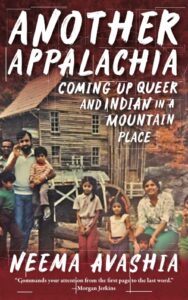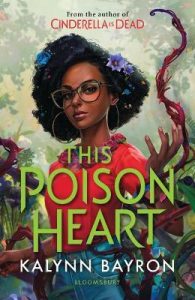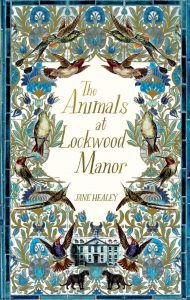Amazon Affiliate Link | Bookshop.org Affiliate Link
Another Appalachia: Coming Up Queer and Indian in a Mountain Place by Neema Avashia is part memoir, part collection of essays as Neema Avashia recollects growing up as part of a tiny Indian community in a majority white community in a corporate town in West Virginia and her subsequent relocation for college and then for a career in Boston. Through a series of anecdotes, she remembers the kindness of neighbors and coaches as she grew up and whenever she visits, her family’s experiences in creating their own small Indian community and what that meant for their kids, and how she reconciled those experiences with her adult life away from West Virginia. Avashia’s queer realization happened later in life, once she’d already left West Virginia, but she spends plenty of page time talking about her efforts to integrate being queer, being Indian, and being from West Virginia, while being a Boston Public School teacher.
I always love a narrative about being from a rural area and being queer. Indiana is a little different flavor of rural than West Viriginia, but the underlying themes still resonate strongly. I especially resonated with her continual meditations on being happily settled in an urban area on one hand, but missing the sense of community or some traditions on the other, and on yet a third hand being unable to fit back in when driven to re-visit. It’s a theme that I think will be familiar with many readers from rural areas who left, as are her continual efforts to decide who is safe to introduce her wife to, and to integrate her family and friends’ expectations for how a relationship progresses into her lived reality as a queer woman. Avashia handles these topics deftly, balancing good memories with bad and childhood nostalgia with a more nuanced adult perspective in a way I appreciated.
Avashia also spends a lot of time on her roots versus her moving on with her adult life, which I deeply felt reading this on a bus in Pittsburgh while reflecting on my own roots. Her meditations on her father’s expansive and caring definition of community, how her neighbors growing up took care of each other, and her efforts to apply those values to her urban life in Boston, where she didn’t even know her neighbors, is impactful and emotional. She struggles with her identity as an Appalachian writer who lives in Boston, as an Indian woman who connects to her heritage and culture differently than her parents and extended family because of where she grew up, and as a queer woman who had no context for that growing up. Avashia’s blunt, honest writing attempts to bridge the gap between past and present and is extremely easy to fall into, covering a wide range of topics in one, conveniently travel-sized book.
In conclusion, if you are looking for an impactful memoir to read this summer, Another Appalachia is an excellent book to check out. It’s not a long read, but it’s emotional. You could make an afternoon of it, or it’s perfect for small moments like a commute. If you resonate with the material, you will appreciate the nuance, empathy, and compassion she brings to the rural experience. And if you’re new to the experience, this collection will be full of depth and understanding. I can’t recommend it enough for people looking for a queer memoir.






